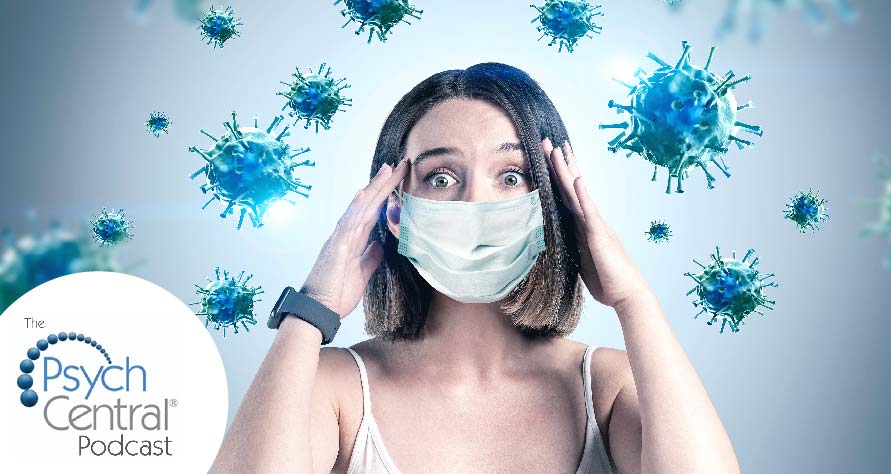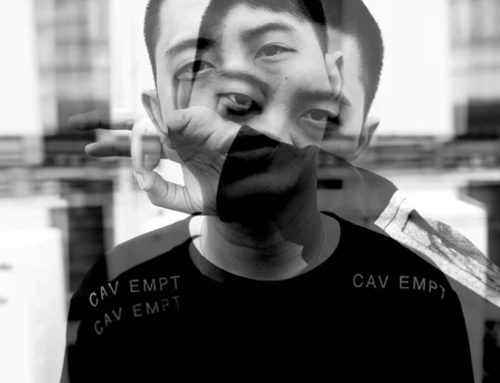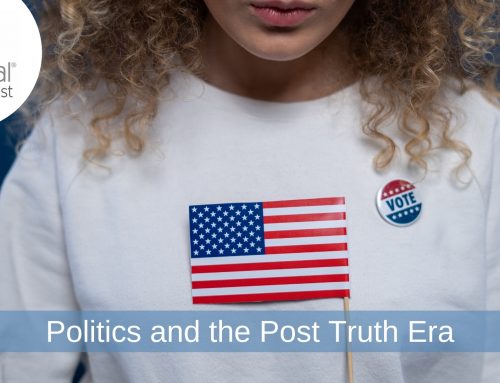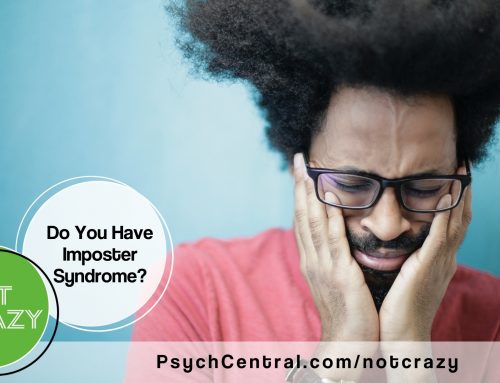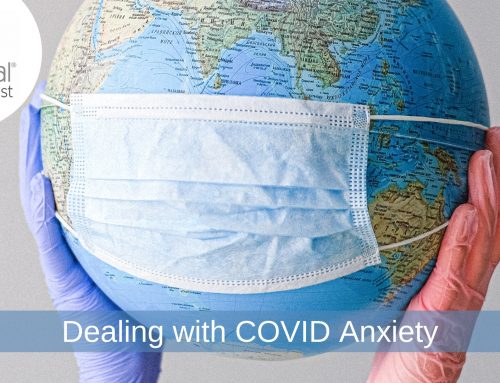There’s “nothing to fear but fear itself,” said the late President Franklin D. Roosevelt. Fear keeps us up at night, wears down our immune system and makes some people hoard obscene amounts of toilet paper. In this global COVID-19 pandemic, we’re seeing an unprecedented level of fear, and if we let it, this fear has the power to deteriorate everyone’s mental health. In today’s podcast, our guest Dr. David Batman shares how we can protect our wellbeing in the midst of the chaos. Click on the player below to listen now!
SUBSCRIBE & REVIEW
Guest information for ‘Coronavirus- Psychology’ Podcast Episode
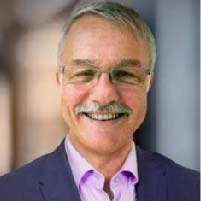
Dr. David Batman has been a registered medical practitioner for 47 years and a Consultant in Occupational Medicine for 30 years. He spent 20 years as Head of Occupational Health, Safety and Employee Wellbeing for Nestle in the UK and Ireland and has special interests in mental health at work, risk assessments, rehabilitation and resettlement of employees.
He specializes in advising on lifestyle preventative approaches to medicine, developing resilience, and management of mental health issues. Dr. Batman previously served as Chief Medical Officer for Global Corporate Challenge (GCC) and is now a valued member of the Virgin Pulse Science Advisory Board.
Computer Generated Transcript for ‘Coronavirus- Psychology’ Episode
Editor’s Note: Please be mindful that this transcript has been computer generated and therefore may contain inaccuracies and grammar errors. Thank you.
Announcer: You’re listening to the Psych Central Podcast, where guest experts in the field of psychology and mental health share thought-provoking information using plain, everyday language. Here’s your host, Gabe Howard.
Gabe Howard: Welcome, everyone, to this week’s episode of the Psych Central Podcast. Calling into the show today we have Dr. David Batman. Dr. Batman has been a registered medical practitioner in the U.K. for over 40 years. He spent 20 years as head of occupational health, safety and employee well-being for Nestle in the UK and Ireland and has a special interest in mental health, at work, risk assessments, rehabilitation and resettlement of employees. Dr. Batman, welcome to the show.
Dr. David Batman: Happy to be here. Great to be able to participate.
Gabe Howard: Today, we are going to cover the COVID-19 pandemic that is on everyone’s mind. Specifically the mental health aspects. People are worried and that’s not just people with anxiety or mental health issues. Everyone is worried globally.
Dr. David Batman: I would agree with you on that, Gabe. I mean, I’ve been practicing medicine for 47 years. I have seen cases of malaria and rabies. I’ve helped businesses through avian flu, SARS, MERS. But in all my years, I’ve never seen anything that’s come on with this rapidity, severity worldwide. At the same time, and even as we talk, research is going on and we’re learning something new about it. I mean, it’s fascinating, but it’s rare that I’ve seen that look of fear on so many people’s faces. There’s a commonality here. It’s one thing that has actually brought humanity together across the world. So I’m hoping that when we get through this, and we will, something different will come out of this and possibly some real benefits.
Gabe Howard: Well, I certainly like that you’re looking on the bright side. You know, the phrase every cloud has a silver lining. I certainly hope will apply. But let’s talk about how quickly COVID-19 is evolving because people are feeling overwhelmed by just the disease in general. But the amount of information that is being shared, it’s coming out so incredibly rapidly. And I know that we in the best of times struggle to find reliable sources of information. What are reliable sources that you recommend people follow to stay ahead with factual information?
Dr. David Batman: I just have been through various things over my career. This is different, and I think the difference here and you’ve hit it on the nail on the head is the visibility of it through the media and not just standard media and mainly social media, which is which has caused the biggest difference in the past. We’ve had outbreaks of disease. When the news outlets were slow to get it to us, we had time to digest. This has been fast. I’ve been practicing mental health. I’m looking at people, mental health for many years now. And the common thread has been over the last eight to 10 years, a level of distrust and uncertainty. That’s been the new norm, the new stress. So why should we now suddenly start to trust what our medical profession, our leaders are saying when we’ve had all this level of distrust before? The social media has taken over and it’s catastrophized it. It is creating that fear. And I will say at this stage, I think it is a nasty illness. But for 90 percent of the people, you’re going to have a fairly mild illness. You might have a bad time of flu. But you are going to come out the other side. And we’ve forgotten that fact. We don’t talk about that enough. It’s catastrophized. None of us can give absolute reassurance. Some people will die. There’s no doubt about that. There’s just an unfortunate fact of life. Balanced against the number of people who die from flu, 650,000 people a year died from flu. In the states, every 30 seconds, somebody dies of a heart related condition, etc. Life comes to an end for some people, unfortunately. But this is very public and I think that’s the big difference. It’s very public now. Now, to me, sources I invariably go to is certainly the Center for Disease Control in the States, the CDC, a great source of information that. I go to the World Health Organization’s Web site and they are a wealth of information.
Dr. David Batman: Some here in the U.K., I look at Public Health England. Certainly, within the Virgin Pulse family that we’ve got, we’ve got a fabulous platform. We’ve developed a tool kit which is educational, it’s supportive, it’s resource heavy. You have experts like myself and others who are scientifically based, who are giving the right information. Johns Hopkins University has got a very good Web site. They’ve got a dashboard that one can look at which shows the evolving pattern of the disease and the numbers of diseases. Again, I’m going to give a degree of caution here to people. Because, the numbers, you know, if you look at death rates and that’s what people worry about most, quite catastrophic. The problem is here, we actually really don’t know the absolute numbers of people infected. We only know the number of cases who have actually been admitted to a hospital. So for the vast majority of people having this mild illness, etc., it doesn’t need reporting. And they self distance, they self isolate, they work at home, et cetera. We actually don’t have accurate data. But what we do know is it’s across every country in the world and it’s very visible. The science is developing. What I talk about today may be different tomorrow or the day after because the amount of research that’s going on is developing worldwide very fast. So sometimes what is right now is not right tomorrow. But I will say people really limit the amount of exposure that you’ve got through the media and to social media.
Gabe Howard: It’s really interesting that you said that we should limit our access to information. And I understand that from like a logical perspective because it’s so easy to get overwhelmed. And one of the things that you just said is that things are changing so rapidly and especially in America, we don’t like it when things change. And whenever somebody changes their opinion or their mind or the idea, you know, we call them flip floppers and we say that you can’t trust them because they can’t make up their mind. Again, speaking purely to my American audience, if you say something on Monday, you get new information on Tuesday and you update that opinion on Wednesday. We don’t like that. We want people to get it right the first time. Which, of course, is impossible, especially when something is changing so rapidly as this. Can you talk to us about that for a moment? Because I I have a feeling that the majority of people listening to this, they’re not going to stop watching the news even though they should.
Dr. David Batman: Yeah, the habits die hard, don’t they? It’s what I was talking on a webinar earlier today and we talked about why people were struggling to just regularly wash their hands, or to change their position of coughing and sneezing into the elbow rather than the hand, etc. We’ve all got these learned behaviors which are hard to break. And to break and create a new habit takes an average 60 days. You’ve got to decide why you want to do it. You’ve got to go through a contemplative stage. You’ve got to go through an assessment stage. It’s very difficult to be doing that. The world of medicine, most people tend to think of medicine, this is clearly part of it, as a science whereby we know everything and it is factual. In fact, medicine is more of an art and it is a developing art and there are different opinions from different experts. I’ve always quoted that if you put ten doctors in a room, you’ll probably get eleven answers because one will change their mind halfway through. And that’s what we’ve gone through. But because of the fear factor, because of the exposure, mainly on social media, this is sort of a death sentence, almost an apocalyptic scenario that’s coming to my village, my town, my state any minute now. And people find it very hard to accept and even the medical profession is asking the questions that your listeners are asking as well. And I think part of the realization has got to be that we are trying to give you as much information as possible, but literally we can be contradicted by something new coming in all the time. We’ve got a real conundrum here, but it’s really trying to create a paradigm shift in thinking and results. It’s only when we’ve actually crossed through this pandemic. And we will. I keep going back to your listeners, we will get through it. So only when we get back that we will learn. We’re not very good at learning from history, but we’ve got to learn from this.
Gabe Howard: Now, let’s flip the other way. We have a huge swath of the population that understands how serious this is because it is serious, but we also have a large portion of the population, again, especially in America, that really feel strongly that this is a hoax, that we’re overreacting, that this is no worse than the flu, that everybody’s gone mad. And this is all just an attempt to cover something up politically. What can we say to those folks? Because the fact is this is serious. I want to make that very, very clear. But I also sort of understand, again, especially in America, why people might think that we are overreacting, especially when they’re faced with, well, their routines being shut down. You know, here in Ohio, for example, where I’m from, we can’t even go to a restaurant or get a drink at like McDonald’s or meet at the local bar and throw darts or play pool to assuage our stress. So this really is allowing that other side to really fester. What can we say to that group?
Dr. David Batman: The problem is, I think at the moment, it doesn’t matter which country you go to is the political and economic situation in the early part of the spread of this, trying to protect companies, trying to protect countries, economies, et cetera, on the basis that we don’t want anything to happen. But now there is stark reality that no matter what you do, and it’s not their fault. At this moment in time, we didn’t know what was happening, clearly. They tried to give the best information, but they’ve got to have the trust, as we said. You’ve got to give as much information as you can because it has got to be accurate and it has to be consistent. Now, it’s hard to give that consistent information at the moment, it is variable, clearly, based on the way this disease is progressing. Now, I think part of the problem is it started in China and there’s always been sort of a level of distrust of that part of the world as to whether news is being suppressed and what’s actually happening. But when I look at the data and what’s happened, and the W.H.O. has actually had a delegation within the country. So the data and the information I’m getting, I trust now. Is that the measures that they put in worked, but they seemed to a lot of people very simplistic because we’re used to getting a disease, seeing a doctor, having it removed surgically or getting a treatment, then that’s all we need to do. But it’s very clear from watching out in China that data, they only had one new case yesterday. And you think of the thousands that they were having.
Dr. David Batman: And what they did was to put in containment, to break the transmission, to break the thread. Well, that’s hard for people to do it, but they have a population that actually listens. And because of the way that culture has grown, they comply 100 percent. We’re in a culture in the Western world where if somebody said to us, we are now contain and quarantine a city, a state, we are going to close borders of countries, that’s alien to our thought processes. And the message has never come across that first of all, that diseases need to be contained. We need to stop the transmission from person, from family to family, group to group, which is why we’re having to get into that and to do it. And therefore, we’re having to be fairly draconian to do that. And we don’t know how long that’s going to last. So there’s a conundrum here. I keep going back to we’ve never met before. There’s no playbook for this. There’s no way that we can go back and look at the score as to how it happened before. There isn’t one. We’re in a new play. We don’t know how many acts there are going to be. And we don’t know when the final curtain is gonna come down. So it’s very hard to put this into context, but it will be. People have got to have a belief in that at the moment. But there will be an end point and the vast majority of people are going to come through with this. This is the way it’s going to be.
Gabe Howard: We will be right back after these messages.
Sponsor Message: Hey folks, Gabe here. I host another podcast for Psych Central. It’s called Not Crazy. He hosts Not Crazy with me, Jackie Zimmerman, and it is all about navigating our lives with mental illness and mental health concerns. Listen now at Psych Central.com/NotCrazy or on your favorite podcast player.
Sponsor Message: This episode is sponsored by BetterHelp.com. Secure, convenient, and affordable online counseling. Our counselors are licensed, accredited professionals. Anything you share is confidential. Schedule secure video or phone sessions, plus chat and text with your therapist whenever you feel it’s needed. A month of online therapy often costs less than a single traditional face to face session. Go to BetterHelp.com/PsychCentral and experience seven days of free therapy to see if online counseling is right for you. BetterHelp.com/PsychCentral.
Gabe Howard: We’re back discussing the COVID-19 pandemic and managing our mental health with Dr. David Batman. We’ve talked a lot about the uncertainty, we’ve talked a lot about the things that we’ve lost. We’ve talked a lot about the fear. Let’s talk about some positive steps forward. What are some simple well—being activities that people can add into their day to keep them feeling positive and energized and keep good health habits on the top of their minds? In the midst of all this chaos and closure?
Dr. David Batman: Doctors are not always good at taking good medical advice, but I’ve always been a believer that 70% of your risk of becoming ill, 70% of your ability to actually get a cure and survive is due to lifestyle. And I believe this is all about lifestyle. Well, let me just give you examples of what I’m doing now. Because I’m approaching 70 next week, in this country, the edict from the U.K. government is now I’ve got to self isolate for the next four months. That’s a daunting figure. But I’ve got myself into a mindset now that says if I can’t change my circumstances, I’m going to change my attitude. And that’s sort of a banner that I keep putting out to people. So first of all, I’ve got myself a routine. I’m still working. I’m working from home. My sleep pattern is, sleep, the most important thing, probably one of the biggest risk factors we’ve got is lack of sleep. I will still go to bed at the same time. I still wake up at the same time. I set a routine that we can do. So that gets up. I still get washed and I get dressed into work wear, I’m not swimming around in my p.j.’s, etc.
Dr. David Batman: I’ve got my work set out. I’ve told my family that I need quiet time as to what I’m going to do. I’m exercising. I can go out and exercise as long as I’m six foot away from anybody else. I have a step counter. I’m still getting a thousand steps a day. I’m eating well, I’m drinking well, I’m getting plenty of fluids. And on the fluids side, a bit of research came out yesterday from a Japanese doctor, that said, this virus is sticky. If you’ve got a dry mouth and a dry throat, it sticks in your mouth, then it crawls its way down into your lungs. If you’re drinking all the time, the virus gets stuck into the fluid, gets washed into your stomach and the acid destroys it. So simple there. Don’t resort to alcohol to console it. Don’t resort to too much smoking too much alcohol, etc. My wife and I, she’s got the things that she does. I’ve got the things that I do. We have the things together. Because the danger is if you can come together with a partner 24/7, you’ve got nothing different to talk about. We can’t go out for a meal anymore. We’re gonna plan how we can have some special meals at home, etc.
Dr. David Batman: I’m communicating with my children, with my grandchildren, a lot more through Skype, through Facebook and through WhatsApp, and we’re doing that a lot more. So, I’ve got an outlook with the outside world. Within our community here, we’ve got a community app that we set up. We set up, and I’m helping them do, even though I’m here at home. We’ve got volunteers to help the elderly, the infirm, to get their food, to get their medicines. I feel as if I’m contributing, even though I’m isolating at the same time. All about lifestyle. I have limited, really do limit the amount of time I look on social media, maybe once, maybe twice a day, if I’m being honest into that area. I’m not getting the negative news. I’m looking at the positive news. But, my life goes on. I’ve got a to do list. I want to redesign my garden. So I’m going to do that. I’ve got some books I’ve always wanted to read. I’ve put time aside to read those, etc. It’s about positivity. What you’ve lost is your freedom a little bit at the moment. You can do so much, but it really is about I can’t change my circumstances. I’m isolated, but I can change my attitude.
Gabe Howard: I could not agree with that more, and I do think that a positive approach is very beneficial and I like what you said about we’re just not used to this, it really does show how much we take all of our freedoms for granted. Every morning I wake up and I flip the light switch in my bedroom. And I’ve got to tell you, every time I flip that switch, the light comes on. Ninety nine point nine nine percent of the time. But every now and again, I flip that switch and the light doesn’t come on and all I think of is, oh, how could this happen? What horrible luck. This is just terrible. So it really does show you it doesn’t matter how often something works. We really, really only focus on that one time that it doesn’t. Well, this is an extreme example of that. I really do think this is what’s happening to many of us. We’ve just really taken for granted how much we have on our normal day to day lives. And it’s become apparent to us now that so much of it is missing.
Dr. David Batman: I think you’re right on that. I think there’s a new norm that’s coming in. I think, I’m seventy in two weeks time. My wife and I have been planning for a year to go on a trip of a lifetime. But what it turns out is that trip of a lifetime was next Friday. We were due to go on a cruise around Japan. And yes, I’m sure you and your listeners can guess which cruise ship my wife had booked a cabin on. It was that floating petri dish; it was one of the big ones in the news with a floating liner in Japan. We looked forward to that. But at the same time, it’s gone. There’s no point dwelling in the past. The future will be there. It will be different. But people have been through transitions before. The world’s been through transitions and the world will sort it out. And I think at the moment, all we can do is trust the science. Trust the medics and indeed, accept that the change that is going on is developing. It’s not in any of my textbooks. It’s not anywhere on the Internet. As I said, there’s no playbook for this, and we’re going to have to ride through it. But there’s going to be an outcome.
Gabe Howard: And whatever that outcome is, we’re all going to arrive there together. Let’s switch gears a little bit and talk about your Coronavirus Toolkit for Employee Wellbeing. Can you tell us what that is and who it applies to?
Dr. David Batman: I’ve worked for the Virgin Pulse platform now probably for 12 years, et cetera, on our platform, and we believe in lifestyle change and what we are looking for is sustained behavioral change. It’s science based and what we, the aim is to empower people. We give people support for their mental health. We put mental health on the agenda. Financial help. We got counselors that can help. But suddenly realized we’re a different world here. And therefore, for the people who are part of our family, we thought we need to help them. And the one thing, again I come back to this and you alluded to it right at the beginning, where do we get sustained information that we can rely on? Everything that we put together, we’ve got a science advisory board, which I’m part of, therefore, everything is science based. And that’s when we said, well, what do people need? So we’ve got on that platform that people get access to it, we’ve actually got how can you keep your workforce motivated? Engaged in times of disruption, etc.? We’ve got the tipsheets, you know, tipsheets on how, we literally created one all about working from home. So how can you go into that new world of work where home has become the norm for work? Are we are giving you some healthy tips which know how they will work, etc. We’ve got a resource guide. We’ve got some prevention posters there, etc. as well. So it’s a myriad of things which are designed for employer and employee. What it is, is about getting consistent, scientifically based advice and that advice will change as the situation changes. We’re all working incredibly hard behind the scenes to make sure that this is consistent and correct and up to date, et cetera, providing both the employer and the employee with resources. So you don’t have to go to reinvent the wheel every time.
Gabe Howard: And where can our listeners find that tool kit right now?
Dr. David Batman: People will go on to the Virgin Pulse website, et cetera, and it’s linked there. We are putting it out whenever we are putting out our white papers, our information sheets. I have been working with one with one of my colleagues earlier on today, doing a webinar and a Q&A on that. And we will launch that with the link to that. We will use every opportunity to disseminate that to give people help. And yes, we share it with the businesses who are engaged with us there. But we also will put it through the links. It’s a myriad of things. It’s interactive. It’s moving with the time.
Gabe Howard: That’s wonderful, and of course, we will also put that link in our show notes over on PsychCentral.com so people can find it really, really easily. We’re nearing the end of our time. Dr. Batman. My final question is to kind of summarize this all up. What specific recommendations do you have for people adapting to this new time of uncertainty to get us through the next several weeks and and potentially several months?
Dr. David Batman: I know people feel anxious and fearful all the time. But I say to everybody, when you look at people walking around, people have got this public face where everybody on the surface, it’s a bit like a swan glides over the surface, but the feet are paddling like mad underneath. We’re all together. This is one of the few things across the world which is actually bringing people together. We’re all feeling the same way. We’re all feeling screwed up this time. We’re probably not sleeping well. We’re anxious. We don’t know what the future holds for ourselves and our families. Don’t be afraid. Ninety percent of you are going to go through this and you may have a mild illness to a moderate illness. You’re going to come through this. There is no treatment. You’ve just got to go through it. We will get a vaccine. It’s probably a year out before we’re going to get that vaccine. There’s no medication at the moment. Some may come along. The most important thing is listen to what the public health people are telling us. Social isolation. Distance yourself. Break those contacts from one person to the other. Six feet is a good distance. The isolation that we’re going to put people into, the closing of schools and offices, etc., is vital. Please listen to what the medics are saying. Listen to what our public health is saying. These are so vital. There is no magic treatment that will make a difference. You as individuals can make a difference not only to yourself. Your family, your community, your country, your country needs you. It’s been said before, but we need all to come together collectively by individual actions because nobody can do it for us.
Gabe Howard: And of course, I just want to echo what you said there, that we’re all in this together and that we will get through this together and that it really just is simply a matter of hunkering down and waiting it out and remembering that it’s one day at a time and we will all get there together.
Dr. David Batman: I totally agree, Gabe. It’s been a real pleasure to be able to actually come on in and talk to yourself and talk to your listeners, and hopefully we will take away some of that anxiety, that fear.
Gabe Howard: I cannot agree more, Dr. Batman, and thank you for being here and thank you to our listeners for being here. I know this is a time of uncertainty, so I hope that you will find the information that you can find on PsychCentral.com very, very beneficial. There are lots of other resources that you can check out. Just head over to PsychCentral.com and you’ll see it all there. And remember, wherever you downloaded the show, we’d like you to subscribe. We’d like you to rate, rank, and review. And remember, you can get one week of free, convenient, affordable, private online counseling anytime, anywhere, simply by visiting BetterHelp.com/PsychCentral. We will see everybody next week. Please stay well.
Announcer: You’ve been listening to The Psych Central Podcast. Want your audience to be wowed at your next event? Feature an appearance and LIVE RECORDING of the Psych Central Podcast right from your stage! For more details, or to book an event, please email us at show@psychcentral.com. Previous episodes can be found at PsychCentral.com/Show or on your favorite podcast player. Psych Central is the internet’s oldest and largest independent mental health website run by mental health professionals. Overseen by Dr. John Grohol, Psych Central offers trusted resources and quizzes to help answer your questions about mental health, personality, psychotherapy, and more. Please visit us today at PsychCentral.com. To learn more about our host, Gabe Howard, please visit his website at gabehoward.com. Thank you for listening and please share with your friends, family, and followers.
This article originally appeared on Psych Central as Podcast: Don’t Let Coronavirus Impact Your Mental Health.



